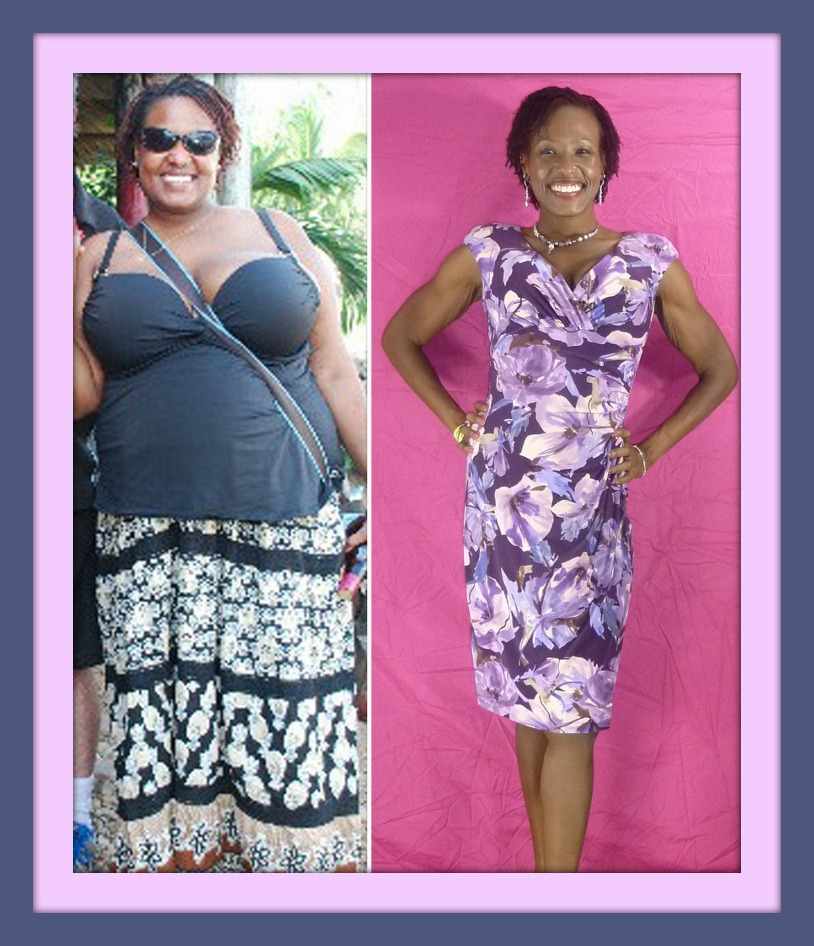
Like many other tiny females Kiya learned to ignore the many myths regarding calorie intake and use her own body as the end game.
Have you ever thought you had broken metabolism?
Have you ever thought you were broken or that your metabolism was broken because it seemed like all the hard work you put in to lose weight didn’t work?
I did. So did Kiya, and so did many other women in our community who finally found success with weight loss was finding the correct calorie deficit for their own body.
We found that it was not what a calculator said, not what a nutritionist said, not what a personal trainer said, not what a fitness competitor or body builder said, and not what someone else with an anecdotal story about what worked for them said.
I thought my low thyroid, low progesterone, low adrenal function, older age, and various menopausal issues were the cause for my being overweight (and obese). They certainly were obstacles for me but they ended up not being the cause.
I thought the prescriptions my doctor gave me for those issues would be the magic pill. No, for me the cure was just eating less for my small 5’ 1” frame. Yes the prescriptions helped my health issues, but I still had to work and create a calorie deficit to lose the excess fat.
A calorie deficit is not fun for anyone. If you have too much stress it’s nearly impossible. Sometimes you just have to be patient and wait for the right season for the deficit to work for you.
If you think you have things wrong with your hormone levels of course go to your doctor and get them checked out.
It is the intake of excess food that causes you to store fat. The only thing that will make you lose fat is a caloric deficit. Once I embraced that concept things started clicking for me.
What about “eat up” days?
I lost 60 pounds just eating smaller portions on dessert plates and I did not need to track or count calories, but now I have to be more meticulous, especially when I’m serious about my results. I might need to track and measure sometimes. It is especially important for troubleshooting fat loss problems.
As a tiny female it’s always bugged me when people online who don’t know anything about me, not even my height, said “You don’t eat enough”, “You are in starvation mode if you eat under 1200 calories” and “You must eat more to lose weight”. I’d think “Really, do you see how often I kill it at the gym on 1200 calories or less?” I don’t think a person in starvation mode kills it at the gym very often.
I’ve seen these people who say things like this derail the efforts of hundreds of other small females like myself.
To say “eat more to lose fat” is an oxymoron.
Not that a slight increase in calories isn’t appropriate at times. We have a built in “eat up” to maintenance days in our “12 week Undulating Metabolic Override Program” to help keep leptin levels up and prevent “crashing”.
Having “eat up” maintenance days are useful for preventing a crash and keeping hormone levels stable, but the simple “eat more” advice is confusing and may be inappropriate for a smaller person who really wants to be in a calorie deficit.
It can be an excuse for some people to overeat or give up on fat loss.
Maintenance days are not “cheat days”; they are normal eating days. For some of us smaller people a normal eating day may only be 100-300 calories more than a deficit day. To simply say “eat more” is a huge disservice to us.
I wish they would qualify the “eat more” mantra to say “If you have too low of a calorie deficit and crash and binge, then eat up to maintenance more often to prevent crashing.” That would be a more accurate statement. But even so, it is actually the binge eating and “inaccurate mental accounting” for calories that stall fat loss. Both of those are already “eating more” thus simply saying “eat more” exasperates the problem.
If the person is truly not losing fat then they are not in a calorie deficit to begin with, so telling them to eat more will only make the problem worse. The person needs to accurately and methodically troubleshoot the problem regarding food intake. Most of the time there is some inaccurate “mental accounting” or misconception of actual food intake that needs to be solved that does not likely involve the simple “eat more” mantra.
Eating up or eating at maintenance should be done as often and as long as necessary to keep yourself sane and healthy. Leigh Peele has helped me solidify this concept for myself in her Starve Mode e-book (personally I love her podcasts that go with them). This is all in line with what John and Brad have always taught us. Perhaps it helps some of us women to also hear the same from a female.
We all do a little “mental accounting”
We are all different and there is no “one size fits all” for weight loss and fitness. We all have different stress, health, lifestyle, and genetics. Even so there are many similarities and most of us make the same mistakes.
We all play mental accounting games with both financial budgeting and food intake budgeting. I remember when I just started my weight loss journey and my dear husband was trying to help me. I had not learned yet to “budget in” treats. I’d move along successfully for 10 days or with a nice deficit and suddenly go nuts for some treat like peanut brittle and say something like “I’ve been good. I deserve this”.
Randy kept telling me you can’t keep doing that, it doesn’t work! And sure enough every time I did that I took a few steps backward in my fat loss progress and it took a week or two to regain my ground again.
After that happened a few times I started to get a clue that I didn’t want those backward steps, they were too demoralizing, so I finally stopped doing it.
I wasn’t counting calories at the time but my daily weighing on the scale was my reality check every time. I still had enough body fat that the scale was still a useful tool if I ignored water fluctuations and only looked at the trend over time. I also didn’t need to count calories because with significant body fat it was easy for me to simply eat less, pay attention to how I felt, and watch the trend on the scale.
Even in the years after we have already achieved our fat loss goals we can fall into the trap of mental accounting. It happened to me this year. I’ve had a rough year with strange hormone fluctuations and had what seemed like unbearable hunger at times.
Lack of sleep was the worst culprit of hunger for me and probably is for most people. It puts a huge stress on your body. Any stress will cause increased hunger and all stress accumulates.
So back to my “mental accounting”; I fell into this trap even though I was tracking my calories daily. I seemed to remember my deficit days because they were so hard, but I seemed to lose track of how frequent and how high my “eat up” days were even when I entered them every day. I knew it was good for me to “eat up” some days so I did whenever I felt like it, and I really was having a hard time with lack of sleep and stress.
I don’t use the body weight scale anymore but I could tell that my pants were getting tight and I didn’t like it. I never got “fat” per se because even with my tight pants my body fat percentage is still dramatically low for a female. It is nothing to be ashamed of, but it’s just my personal preference to be leaner when I can manage it.
Tracking calories is crucial for troubleshooting fat loss problems
I was practically in tears one day not that long ago. I started feeling like there was something wrong with me. I started thinking that my lack of progress for my personal goal was caused by my hormone issues. I knew I was eating at a calorie deficit and dang those days were HARD! Why was I not seeing progress? It was time for a deep breath. Calm down.
So my dear precious husband Randy sat me down in front of my computer and asked “Are you accurately tracking your calories?” “Yes” I replied. “So let’s take a look at the data” he said.
When we took a look at the 30 and 90 day charts it was obvious that I was really good at making sure I had some “eat up” days in between several summer vacation trips where I had plenty of “vacation eating”. That is all well and good and part of enjoying life. It should happen sometimes. We are supposed to do this. It was not the end of the world because I was nowhere near being “fat” and in fact was still within the realm of “under fat” on the DXA charts.
So the 90 day charts showed that the “eat up” days were far too frequent and far too high to make up for my very hard earned deficit days. Since I’m very lean already I can’t go any lower on my deficit days. So the only way I could make a sustainable deficit for myself is to knock down the peaks and try to make them fewer. I had to get my “eat up” days back to a true maintenance day instead of way above what is needed for me.
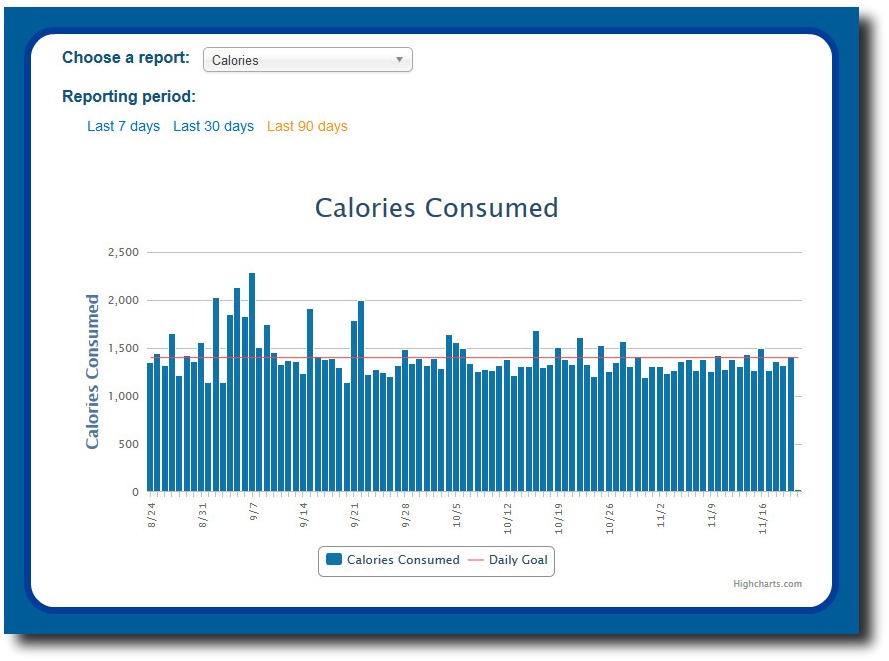
The first 30 days here show what my pattern was for most of the prior year. The peaks were simply too high and too frequent. Data like this is necessary for taking an objective look at fat loss troubleshooting. Once I got those peaks under control for a couple of months things started falling into place. Once again, yes the deficit must be there to lose fat.
I believe most of us have the capacity to eat far more than we need. Most of us want more than we need. I’ve only met a few rare people who can truly intuitively eat and regulate themselves and not get significantly over weight. They usually are not the smaller people, but on occasion they are females. You have a lot more room to fluctuate with your calories when you are a bigger person, especially taller males.
I measured my my food with the digital scale for a few weeks and meticulously kept my calorie peaks lower. It was hard to get started but after a few weeks I fell into a groove and just rolled with it, constantly paying attention to how I felt.
If I felt good at the gym, slept well, and had enough energy to take care of my responsibilities and generally felt happy I knew I was doing good. A few of the lower deficit days I woke up early and didn’t quite get enough sleep so I knew to eat slightly higher the next day, sometimes an extra 100 calories was all it took.
It’s not easy and it takes a fierce mindset to do this. It never really gets any easier. Sometimes I think the stars just have to line up perfectly for you. So many things are out of your control during various seasons of your life. Sometimes you just have to wait for the right season. All you can do is your best and take it as slow as you need to sometimes.
The plan worked. I still haven’t stepped on the scale but I can tell by my muscle definition, lose skin (well yes because I am nearly 53 years old!) and the way my clothes fit that I’m back down to slightly under 12% body fat.
When I see John and Carla in a few weeks they will be able to give me an objective assessment, but I know my body pretty well. I don’t need the scale to tell me I’ve dropped significant fat in the last two months. John and Carla have seen me when I was closer to 15% or so. Now they will get to see me in person at closer to 11% and tell me if they notice the difference.
As far as what I eat I do exactly what Leigh Peele explains in her podcast I just listened to today as I was writing this. I have a few basic meals that I love and I tend to eat those repeatedly with just slight variety sometimes. I love the food I eat. It keeps me consistent. I refuse to eat food I don’t like as long as I have choices available to me.
All of this helped me to reduce the “eat up” peaks shown on my graph from earlier this year. I keep a public food diary online and have over 600 days of contiguous records. I don’t really plan my meals too much, I just eat what I feel like eating while keeping my calorie budget and personal goals in mind at all times, balancing it with how I feel and my activity level.
If you are need help troubleshooting a fat loss problem I would highly recommend Leigh’s troubleshooting guide.
If you are in the Venus community and you want more leading edge knowledge and motivation on diet, health, and fitness I would highly recommend the Immersion package. Our most successful women in the community who have lost significant fat and sustained their fitness for years are part of the Immersion program.
It’s very important not to compare your fat loss rate, muscle gain, or body fat percentage with others
I know I talked a little about my own body fat percentage and I wanted to make it clear that those numbers are unique to me. We are all different and we get to work with the genetic hand we are dealt. My dramatically low numbers for a female, especially that I lived that low for several years now, are unique to me and my higher than normal level of lean body mass.
I’m not a body builder or fitness competitor and never have been, but I have my own unique genetics and build. I am also older and in a different season of my life with regards to my hormones. I have been a long distance runner and have lifted heavy weights for over 30 years.
John and Brad will talk more about genetics and body fat next week. For today I’ll just say that when it comes to rate of fat loss we are all different. I actually lost 60 pounds fairly slowly over 2 years. I’m glad I didn’t compare myself to others during that time.
Some periods of time it seemed nothing was happening but I kept plugging along and trusting the process. I knew I was eating at a deficit, I knew it would work, and it did. I was patient and I was not in a race. I was happy that it was happening for me.
Others around you may seem to lose weight faster. Don’t worry about them. Just worry about you.
We all have different stress, different diets, different sizes and shapes, different fat patterns, different hormones, different water fluctuations, the list goes on and on. All that matters is being patient and happy with your own progress. Even if you participant in a contest it can’t be a race. It’s all just for you and your own health and happiness.
Have a great weekend!
-Ro
Here are some pictures of Kiya and her stories to go with them. She put this together for a speech she wrote called “The 1200 calorie fallacy”. I think Kiya is pretty awesome and she is a fun and spunky personality in our online Venus community who brings lots of smiles and laughter around the place.
“When got back home, I started going through the pictures from the cruise – and everything stopped around me when I got to this one.”
Don’t I look happy, there? I decided to take a spur of the moment trip to celebrate my 35th birthday, and settled on taking a Caribbean cruise. I fell in love with cruising – with the convenience, with the cost, with the concept of a floating hotel which took you to different places – without having to repack! Before the third day of the cruise was over, I knew that I would be back the next year.
When got back home, I started going through the pictures from the cruise – and everything stopped around me when I got to this one.
I knew that was me – clearly, that was me. But the woman that I was looking at, the woman in that picture, she wasn’t who I felt like I was on the inside. I looked happy – but I felt like some of my spirit – some of my joy, some of my sparkle, some of my shine – was over-shadowed by my weight.“After going through the cycle of gaining and losing and gaining even more back and fighting tooth and nail to lose even a portion of it again – I felt like I was broken.”
I’d spent most of my adult life either obese or morbidly obese. My post-college weight ranged from a low of 190 pounds after over a year of strictly adhering to Atkins and a rigorous schedule of daily cardio in preparation for my wedding, to a high of 280 when I got burnt out from the constant cycle of denial and sweat.
And after going through the cycle of gaining and losing and gaining even more back and fighting tooth and nail to lose even a portion of it again – I felt like I was broken. That there was something essentially wrong with me, and that I was destined to always be fat.“When I saw those pictures, of that woman who was me and yet not who I believed I was and not at all who my internal image of myself was – at that moment, I decided that I would dedicate 18 months to losing weight – and learning how to not gain it back.”
But when I saw those pictures, of that woman who was me and yet not who I believed I was and not at all who my internal image of myself was – at that moment, I decided that I would dedicate 18 months to losing weight – and learning how to not gain it back. And I was going to do something totally different – because clearly, the old ways didn’t work.
I considered getting gastric bypass done. That’s the ‘easy’ route, right? It was possibly certain to work, and well-proven.
But I’m cheap. And I don’t like going under anesthesia. And based on one of my friends who had the surgery done – it was no assurance of long-time success.The idea, though, led me to wonder how many calories I REALLY needed to be eating. Gastric bypass patients lose the weight not from the surgery itself, but from the low calorie diets they are forced to go on because of the shrunken size of their stomachs.
With that awareness in mind, I started digging for the source of the 1200 calorie minimum caloric intake that was everywhere in regards to weight-loss, and couldn’t find any root source from the FDA.
In fact, the best source for minimum required caloric intake that I found was from a report from the WHO, which stated that for a woman my age, the adequate macronutrient intake for health was:Carbohydrates = 130g
Protein = 46g
Fat = No required intake for health, recommended 15% of total
This meant that in order to maintain my body weight, I needed to be taking in a minimum of 520 + 184 + 162 = 866 calories a day.
Considering that I didn’t want to maintain my body weight – why was I sticking to a minimum of 1200 calories – esp. when that had been failing me for so many years?I started thinking about my caloric intake as my salary. The fat that I had carried on me for over 20 years was my savings account, and the energy I expended on a day to day basis was my bill.
If I wanted to empty out my savings account – I had to quit my job!
I adjusted to the thought of having a calorie ‘budget’ – I could spend it any way I wanted to – but I had to be very conscious of what I could afford. Having that chocolate now might mean I have to skip dinner, later.
I started tracking every bite of what went into my mouth, I didn’t drop below the WHO minimum, but ate a lot less than I ever had and slowly but surely, the excess calories I had stored on me began to be burnt off.
“I learned that my body was a better guide than any calculator or book could be – that if I was gaining weight; I was eating more than I needed to maintain my weight. If I was losing weight, I was eating less than I needed to maintain my weight. If I was maintaining my weight – well, I was eating just enough.”
I started lifting weights – because as I shed the fat, I wanted to be sure that I shaped the body that was left behind.
I learned that my body was a better guide than any calculator or book could be – that if I was gaining weight; I was eating more than I needed to maintain my weight. If I was losing weight, I was eating less than I needed to maintain my weight. If I was maintaining my weight – well, I was eating just enough.
I learned that I was strong – in more than just body, but also in mind. I learned that I was not – and never had been – broken.
I learned what real hunger felt like, and learned how little I actually needed to eat to be strong and healthy and fully functional. I learned that as a small woman, I only need a small amount of food to keep myself going.
20 months after I decided to dedicate 18 months to changing my interaction with my body and food, I know that I’ve learned enough to insure that I’ll never wear these pants again – and most importantly, my light, my spirit and my joy – shows clearly for me – and everyone else – to see!
NOTES: Kiya referenced the Institute of Medicine reports:
- Dietary Reference Intakes for Energy, Carbohydrate, Fiber, Fat, Fatty Acids, Cholesterol, Protein, and Amino Acids
- Dietary Reference Intakes: Macronutrients









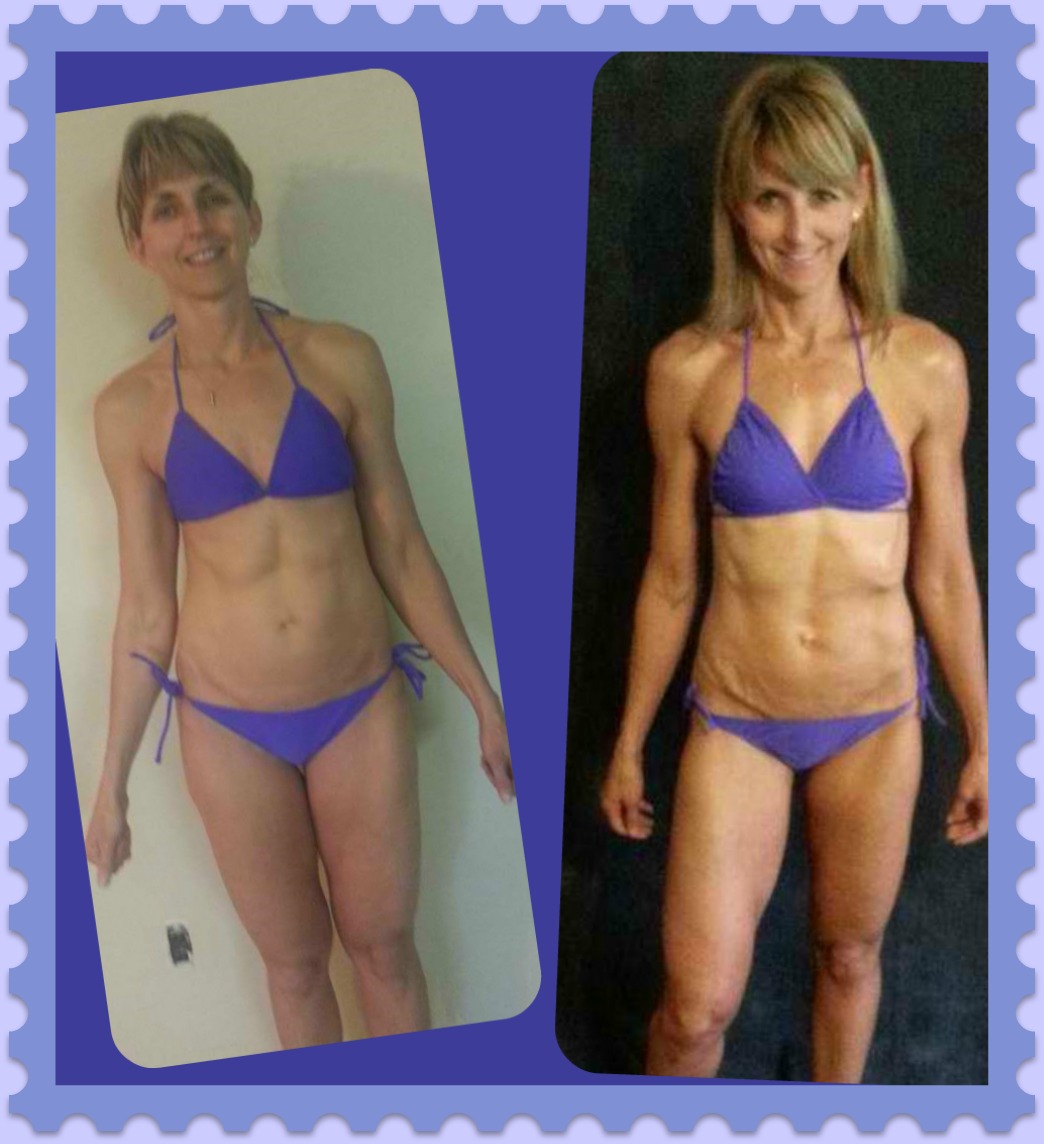
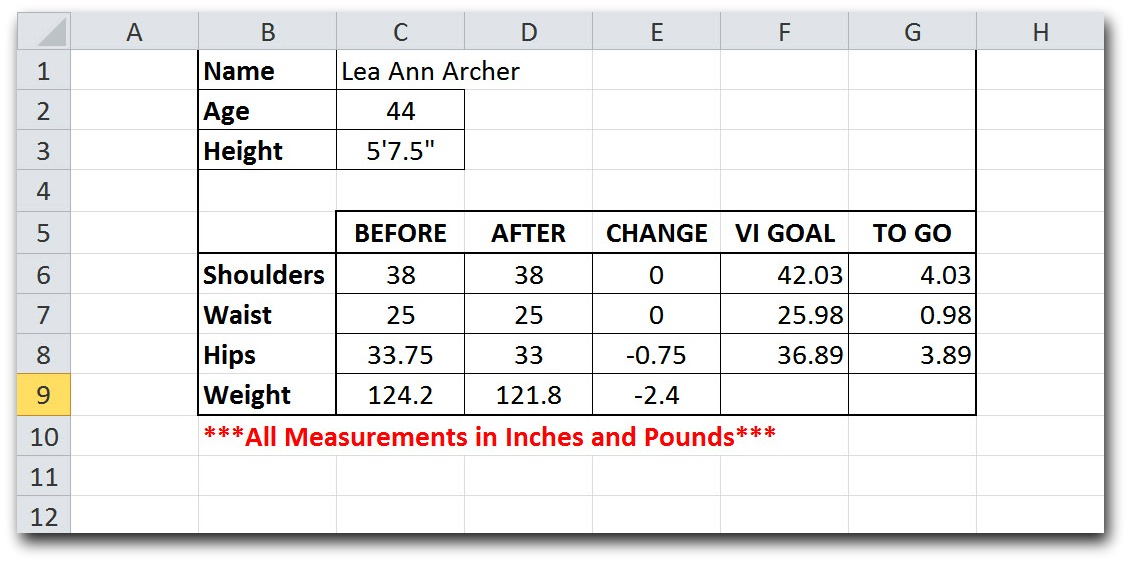
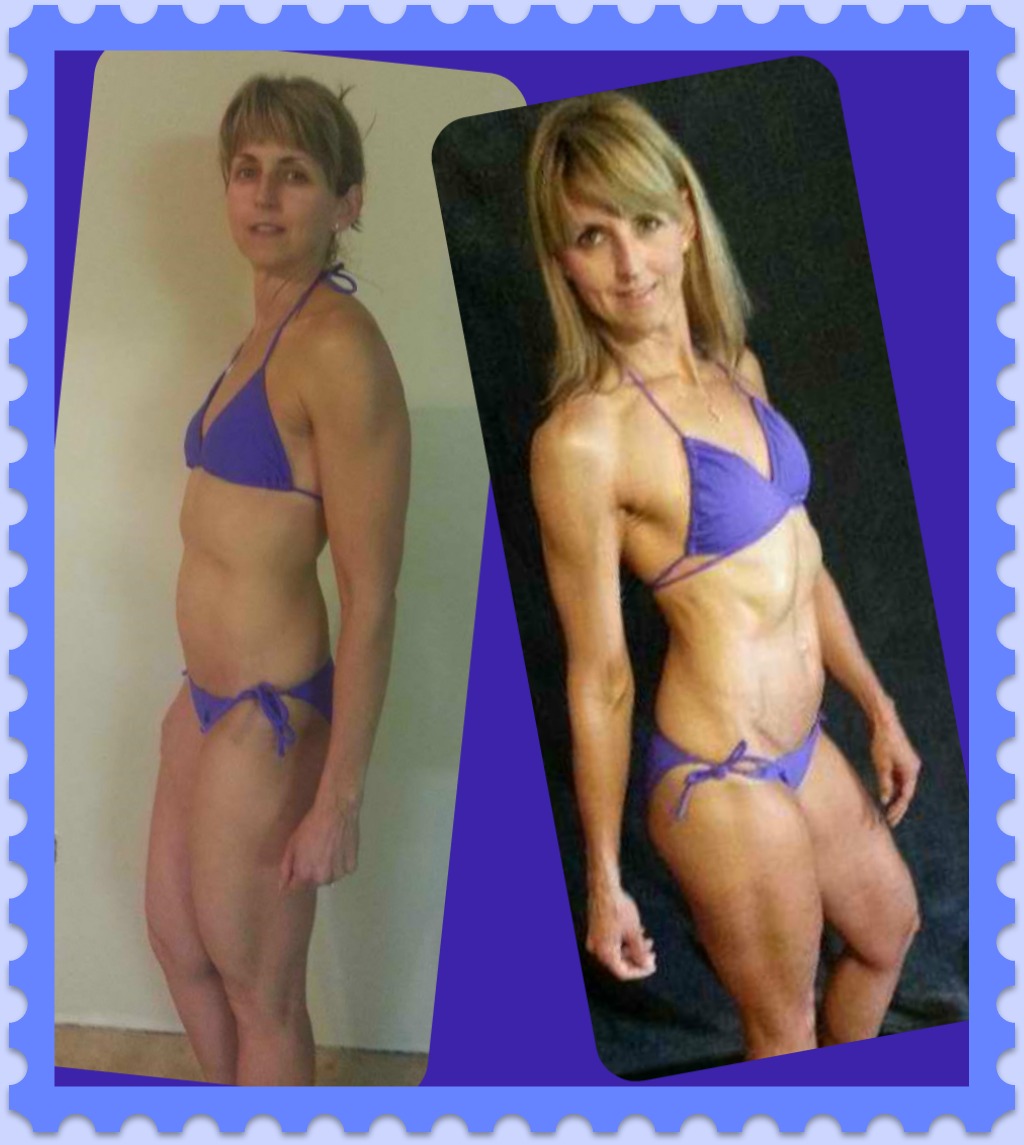
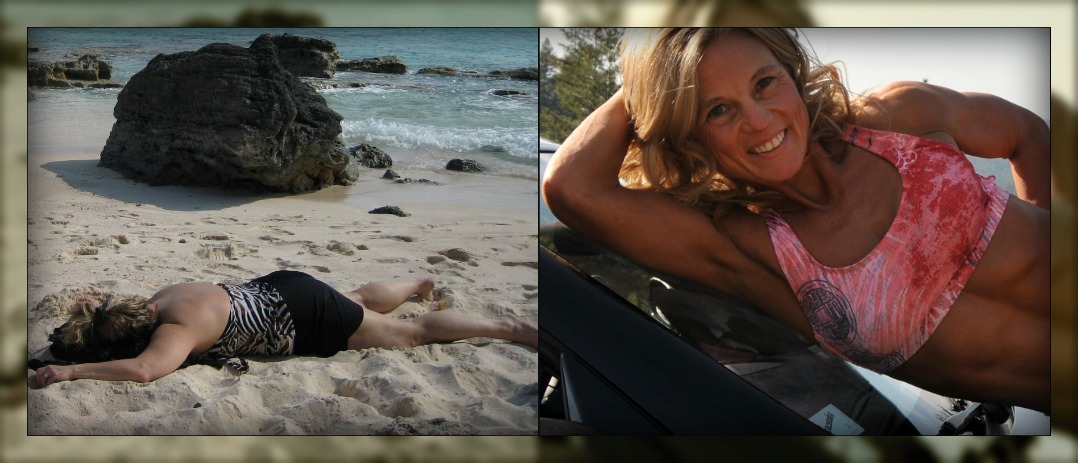
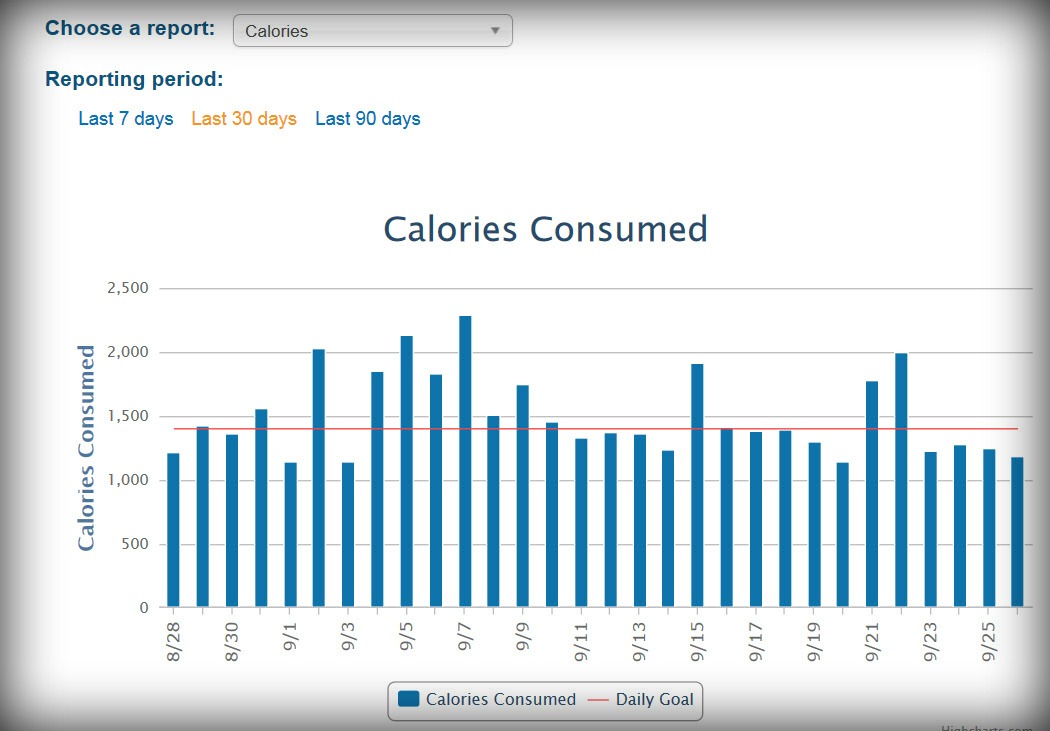


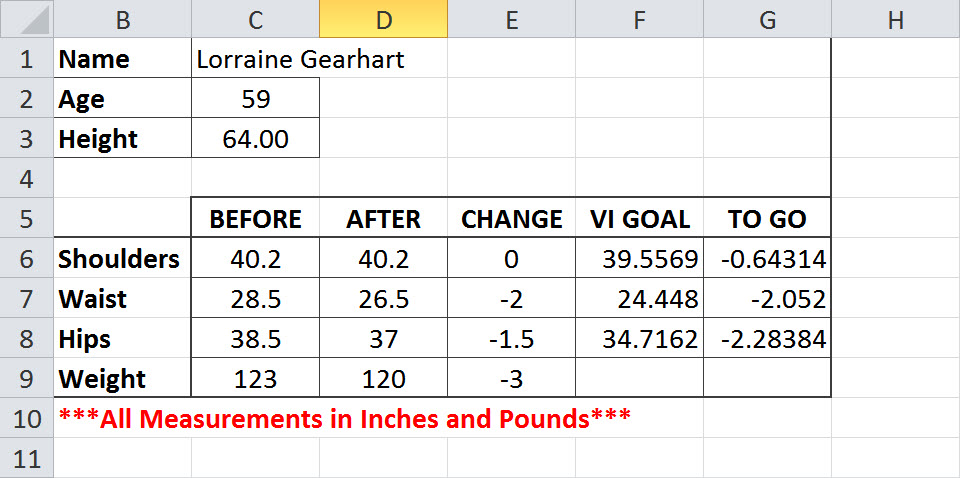
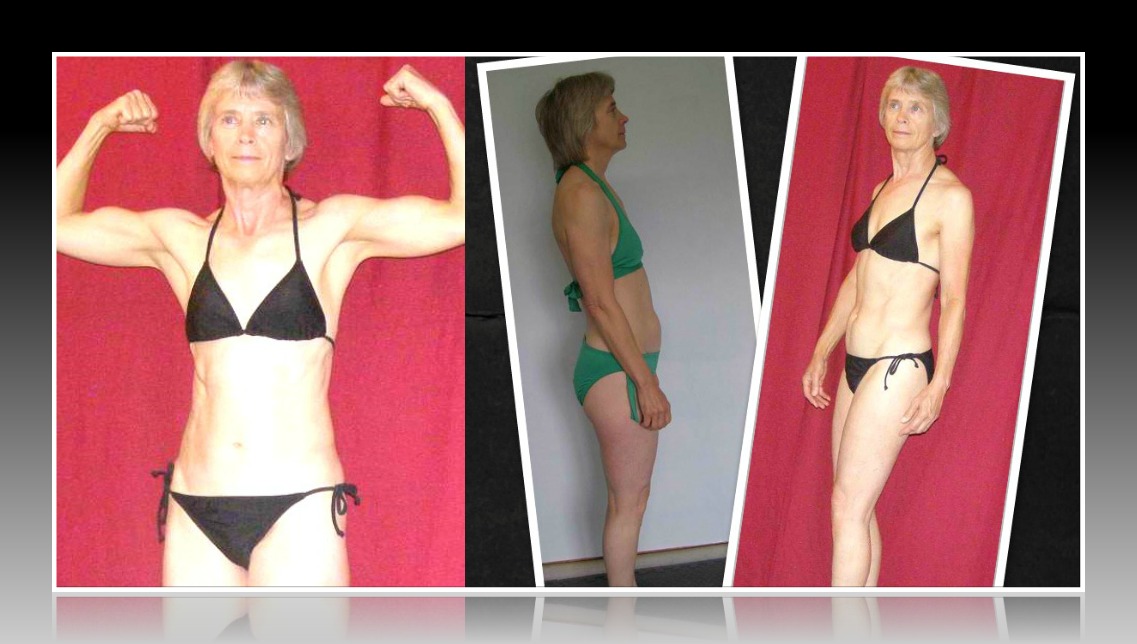

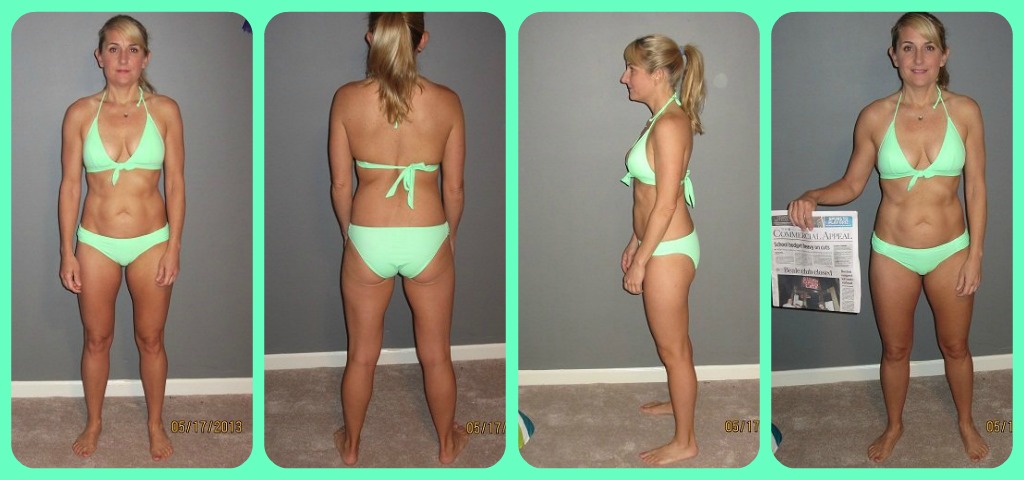


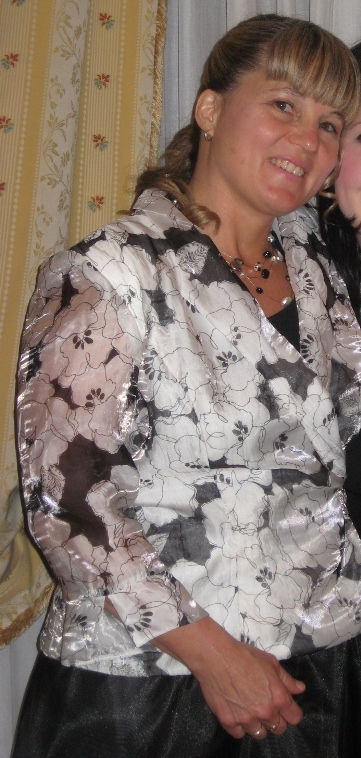
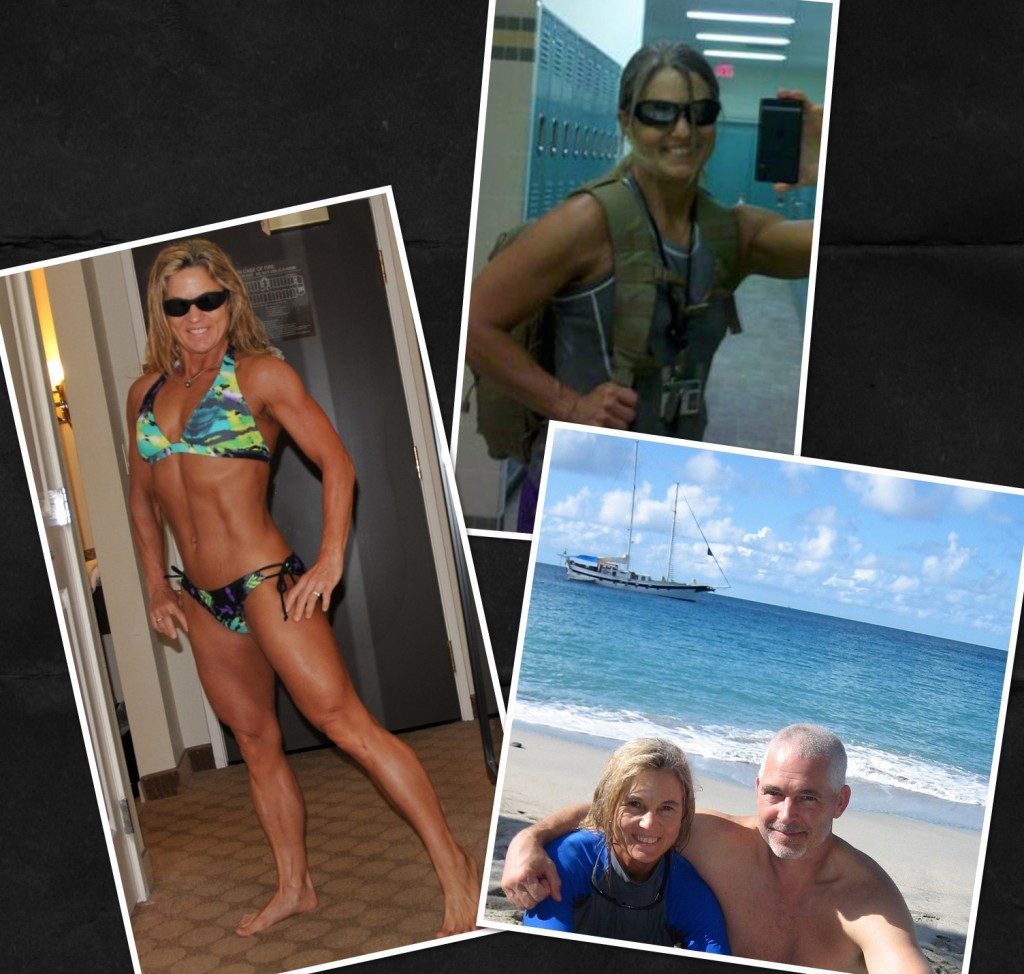

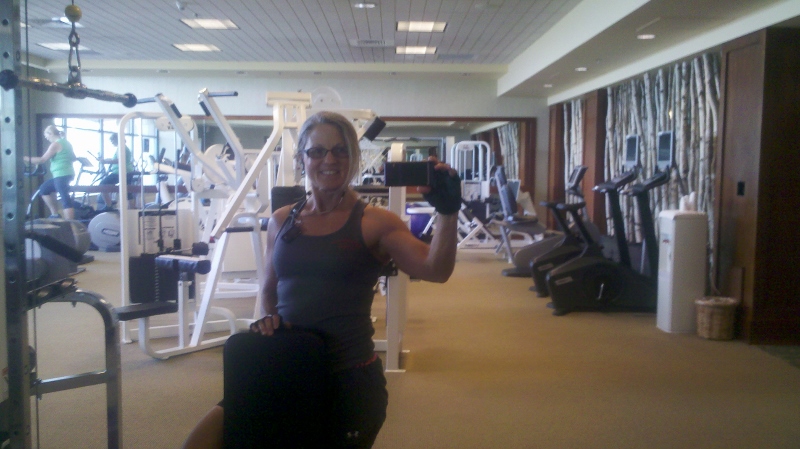
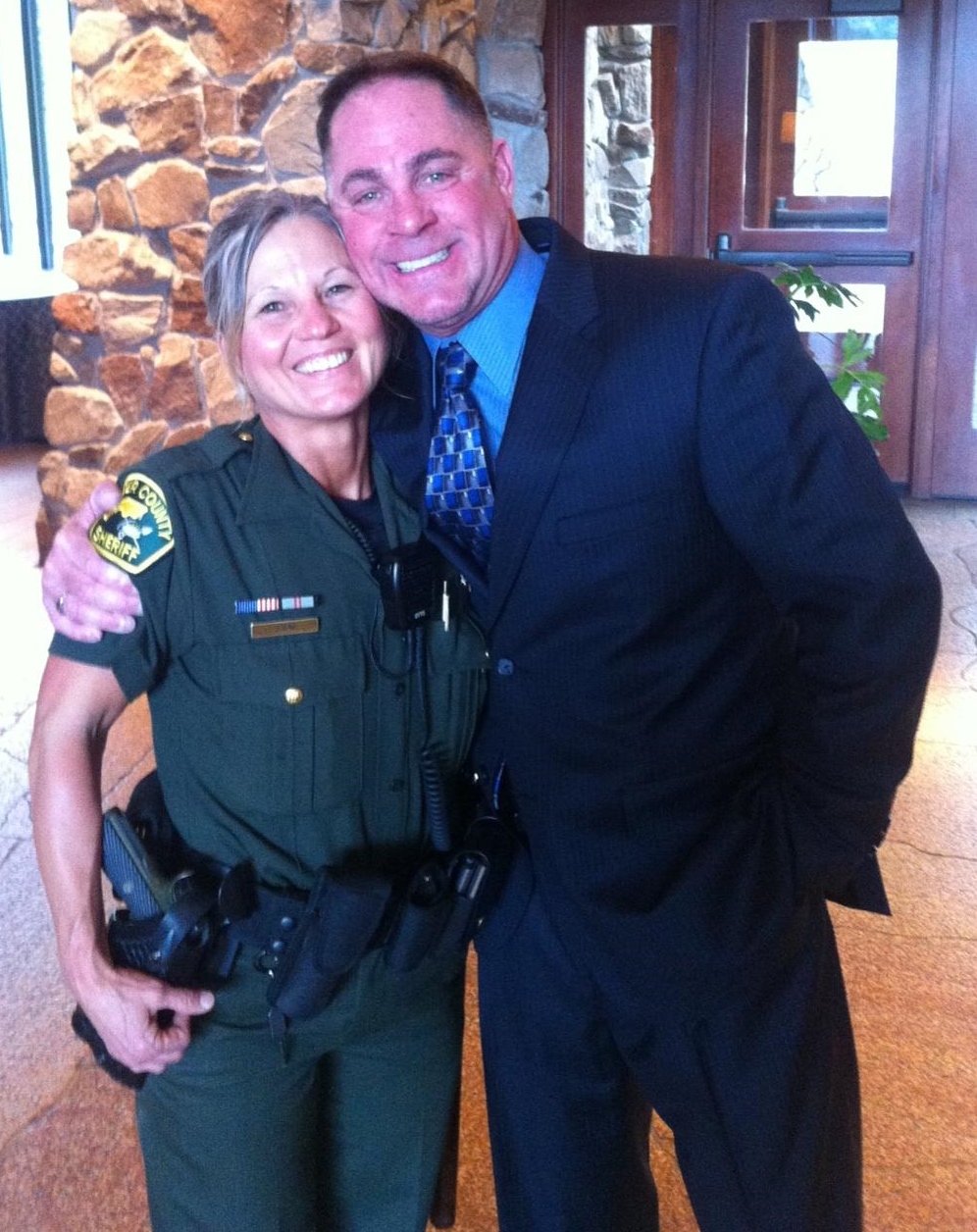



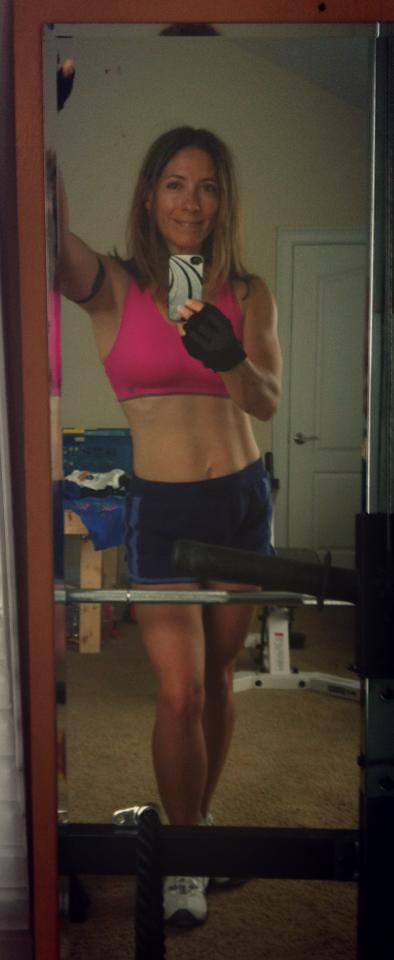



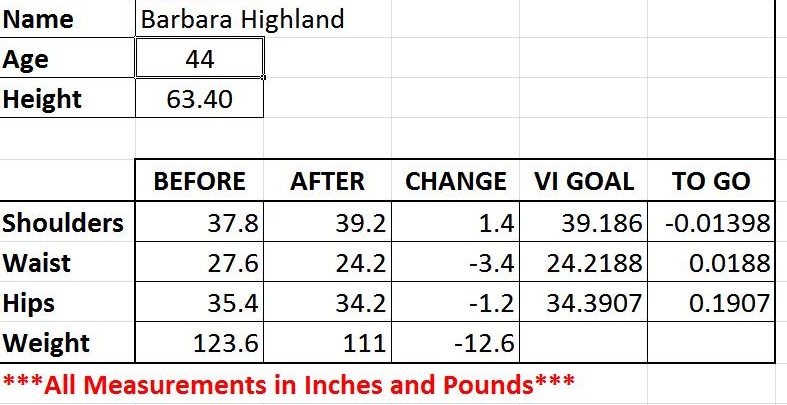
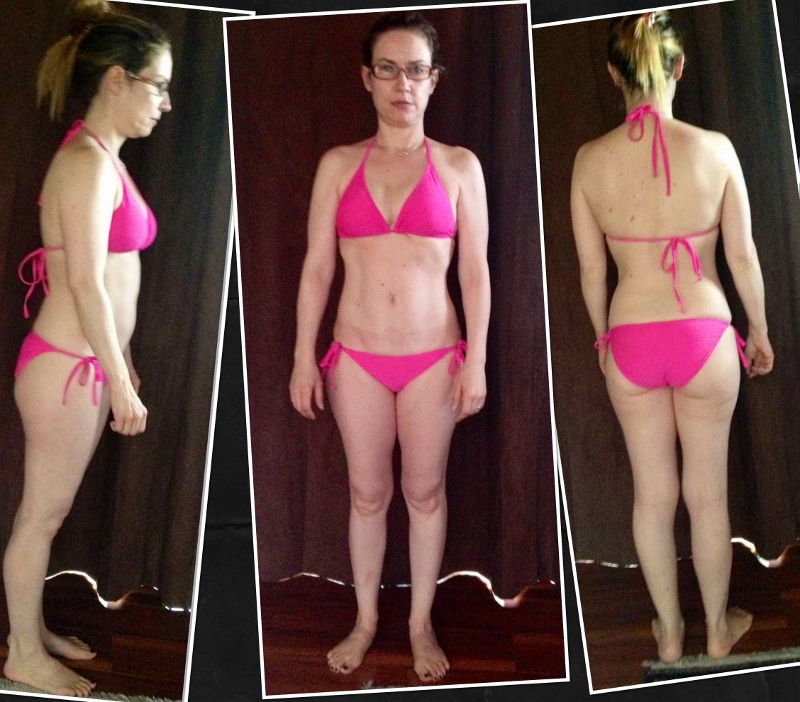
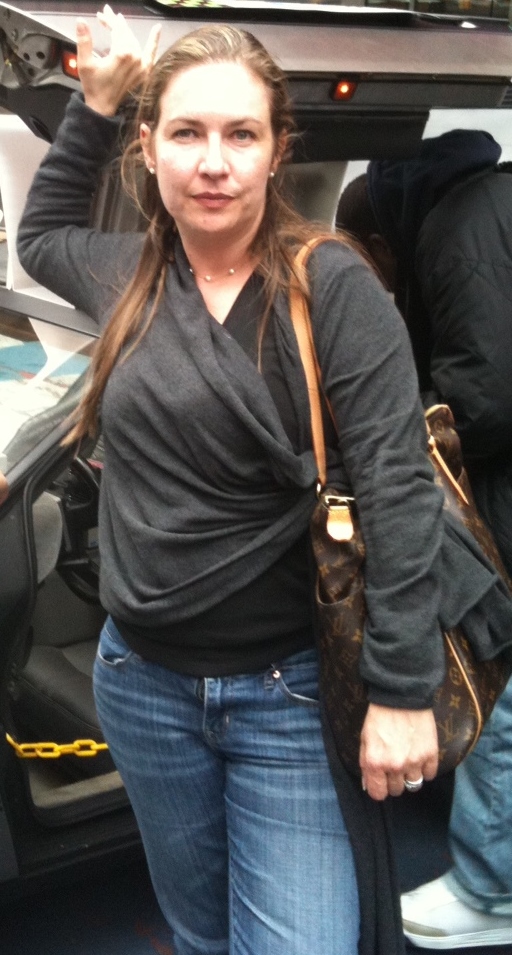

New Comments